More than half lack confidence in Truss to introduce policies which will improve social care services
New research in Britain by Ipsos shows more than half of responding adults (54%) say they are not confident Liz Truss will introduce policies which are successful in improving the ability of social care services to provide the support people need. Only a third (33%) are very or fairly confident she will introduce successful policies in this area.
Unsurprisingly, confidence drops among 2019 Labour voters, only a quarter (26%) expect her policies to be successful in introducing policies to improve social care services while two-thirds (67%) are not confident. Meanwhile, opinion is split among 2019 Conservative voters, 42% are confident while 45% are not.
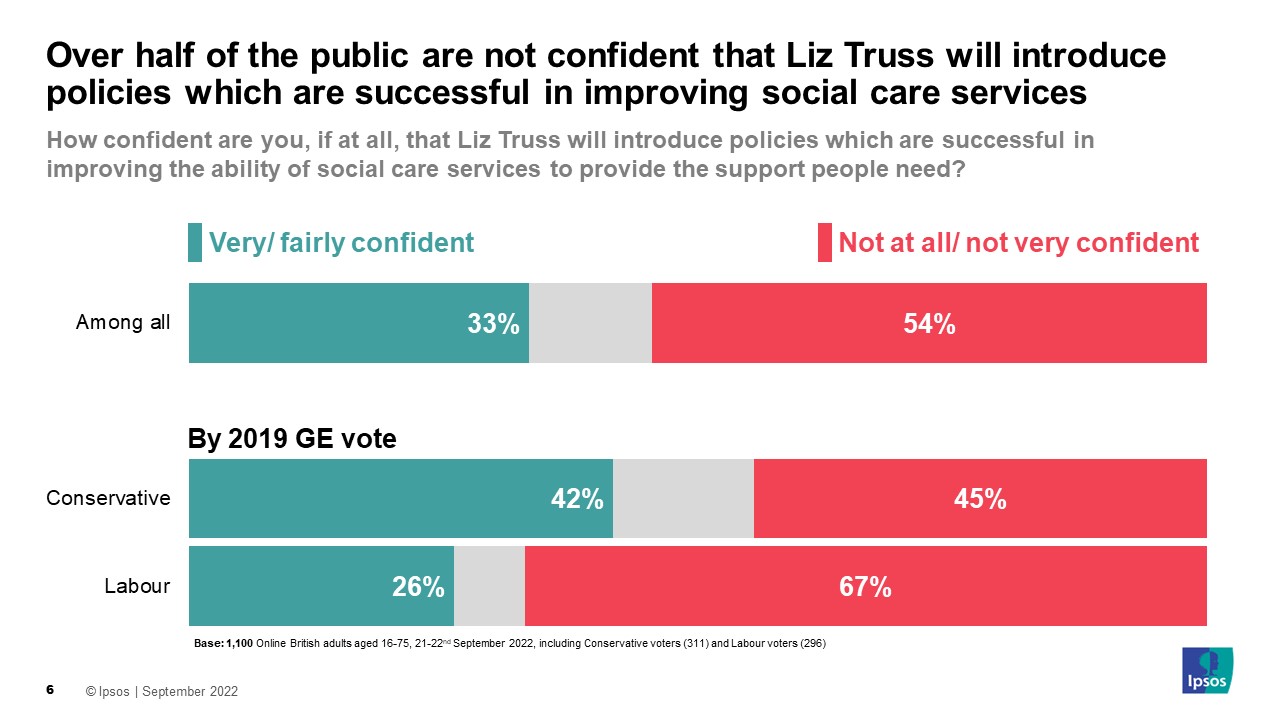
Opinion is more divided considering the impact Liz Truss’s government will have on the quality of social care services. Around a quarter (26%) believe it will have a positive impact on the quality of social care while a third (32%) expect a negative impact. Around 3 in 10 expect it to make little difference (29%).
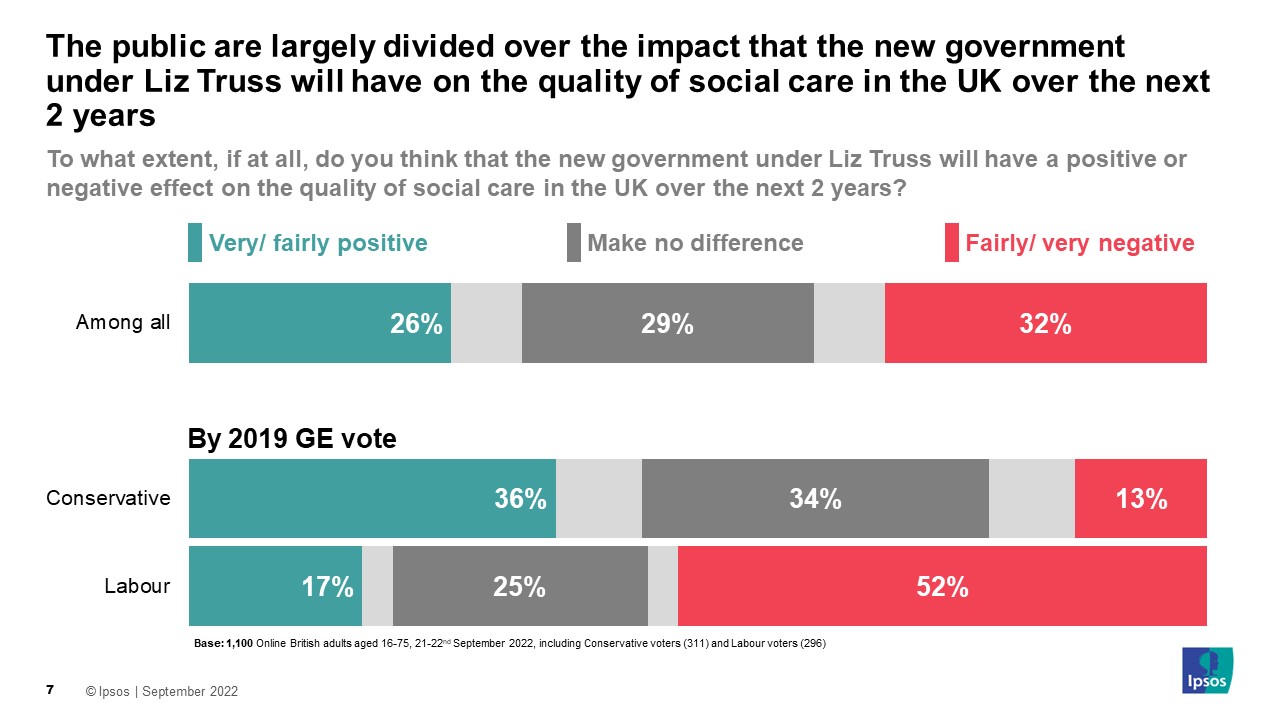
More than half of those responding currently lack confidence in the ability of social care services to provide care to those who need it (53%), dropping to 7 in 10 (71%) of those aged 55-75. Only 4 in 10 (40%) are very or fairly confident in their ability to meet needs.
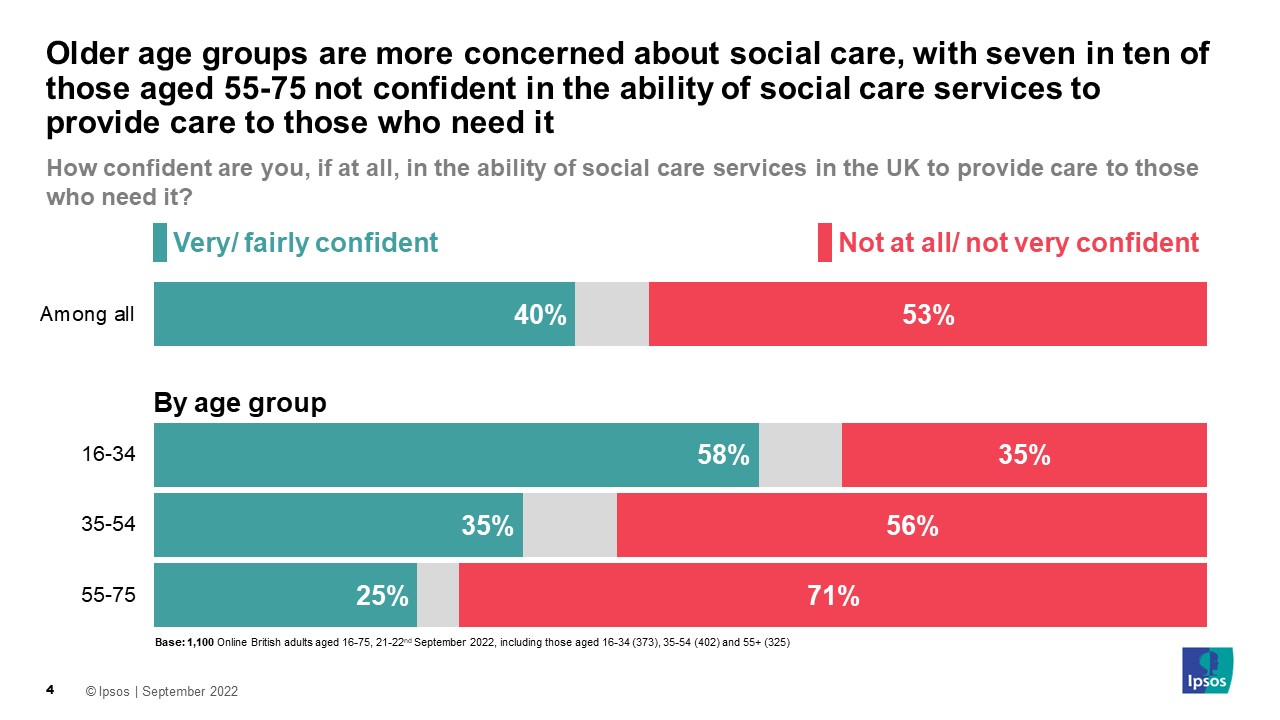
Considering how to pay for any increased spending on social care services, should the government wish to do so, the public are most likely to want this to be paid for by an increase in Income Tax or increase in National Insurance (both 17%) while 15% would support the money to come from spending cuts to other services or an increase in Government borrowing.
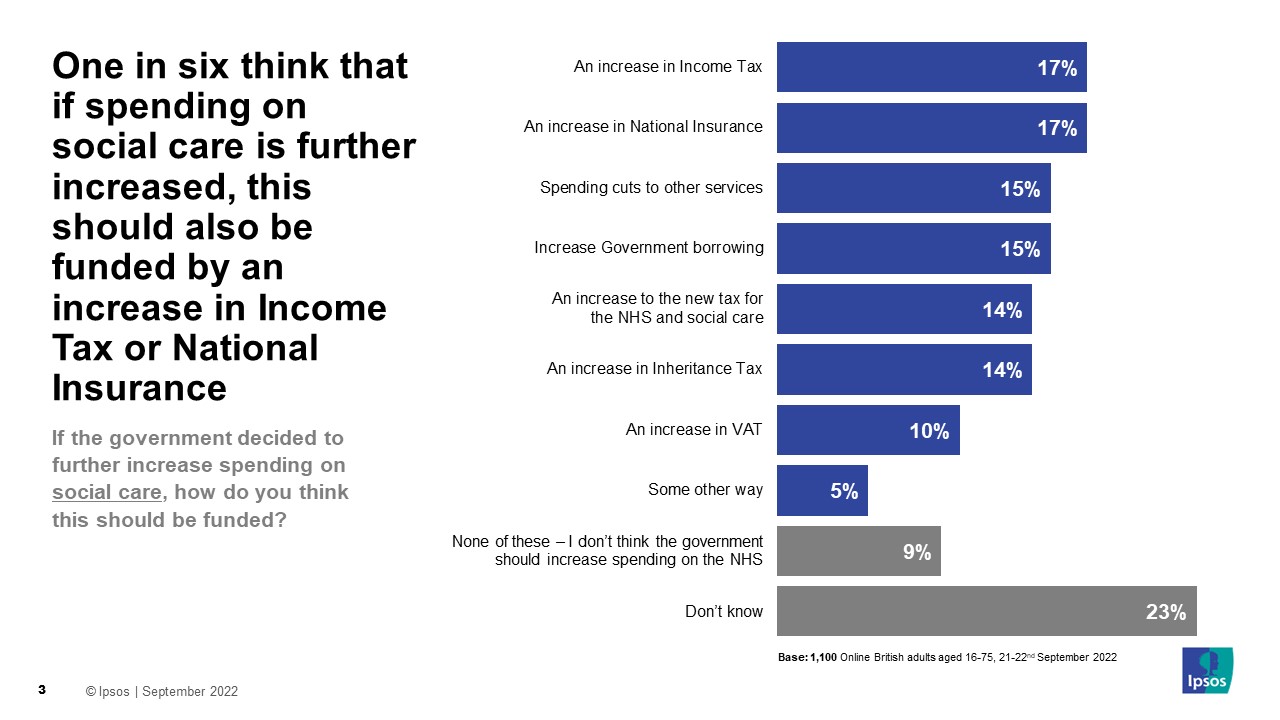
Despite being one of the most popular sources of money to pay for any increase in spending, those responding are divided over the reversal of the previous government’s increase in National Insurance. While a third (33%) support the reversal, a quarter (26%) oppose and 3 in 10 (30%) neither support nor oppose.
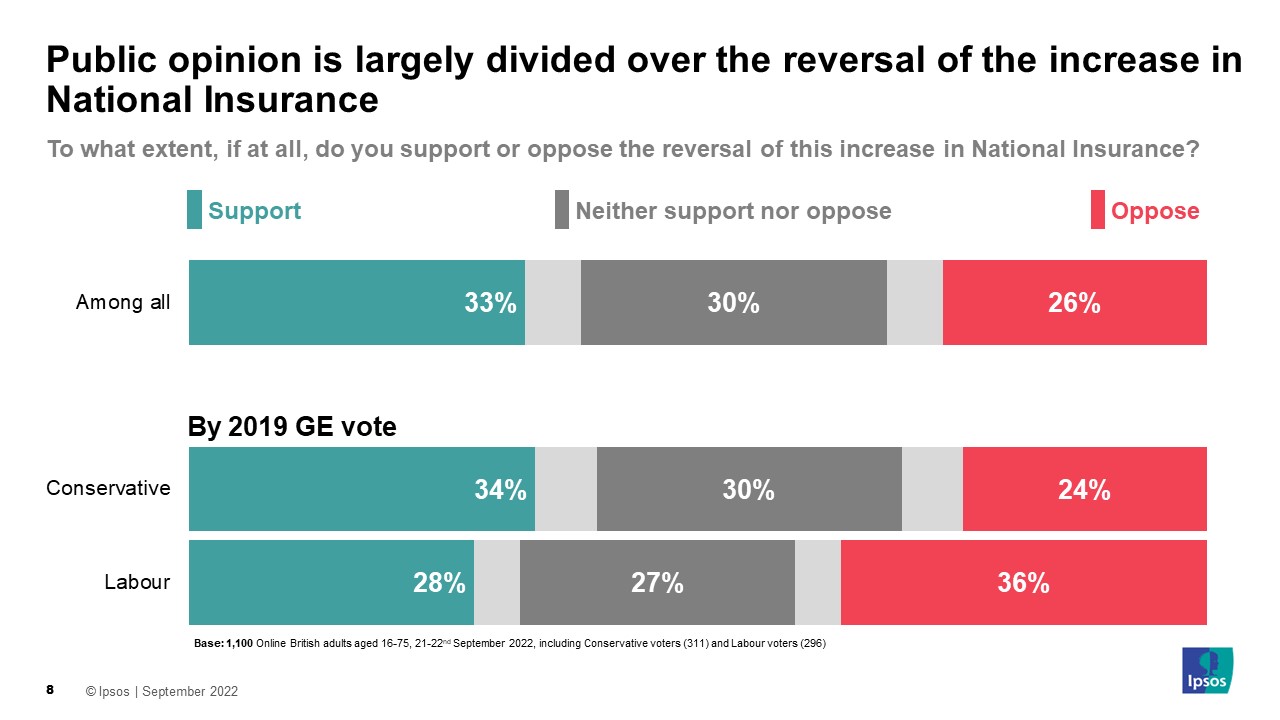
If taxes are cut and the National Insurance rise is reversed, 44% want budgets for the NHS and social care to be increased through transferring money from other sources, e.g. cutting spending on other public services, increasing other taxes or increasing government borrowing. One in 5 (20%) say budgets for the NHS and social care should remain the same while 9% say they should be cut from current levels.
Margaret Blake, Research Director at Ipsos, said:
After COVID, many people became aware of the issues currently facing the social care system. The new government does not seem to have given the public anymore hope, with more than half saying they are not confident that Liz Truss’s government will introduce policies that will improve the ability of social care services to meet people’s support needs while only a quarter think her government will have a positive impact on the quality of social care services.
Few think that social care budgets should be cut in response to tax cuts and the reversal the of national insurance increase, but there are mixed views on how the desired increases in budgets should be funded.
Technical note
- Ipsos interviewed a representative quota sample of 1,100 adults aged 16-75 in Great Britain. Interviews took place on the online Omnibus on 21st-22nd September 2022. Data has been weighted to the known offline population proportions. All polls are subject to a wide range of potential sources of error.



